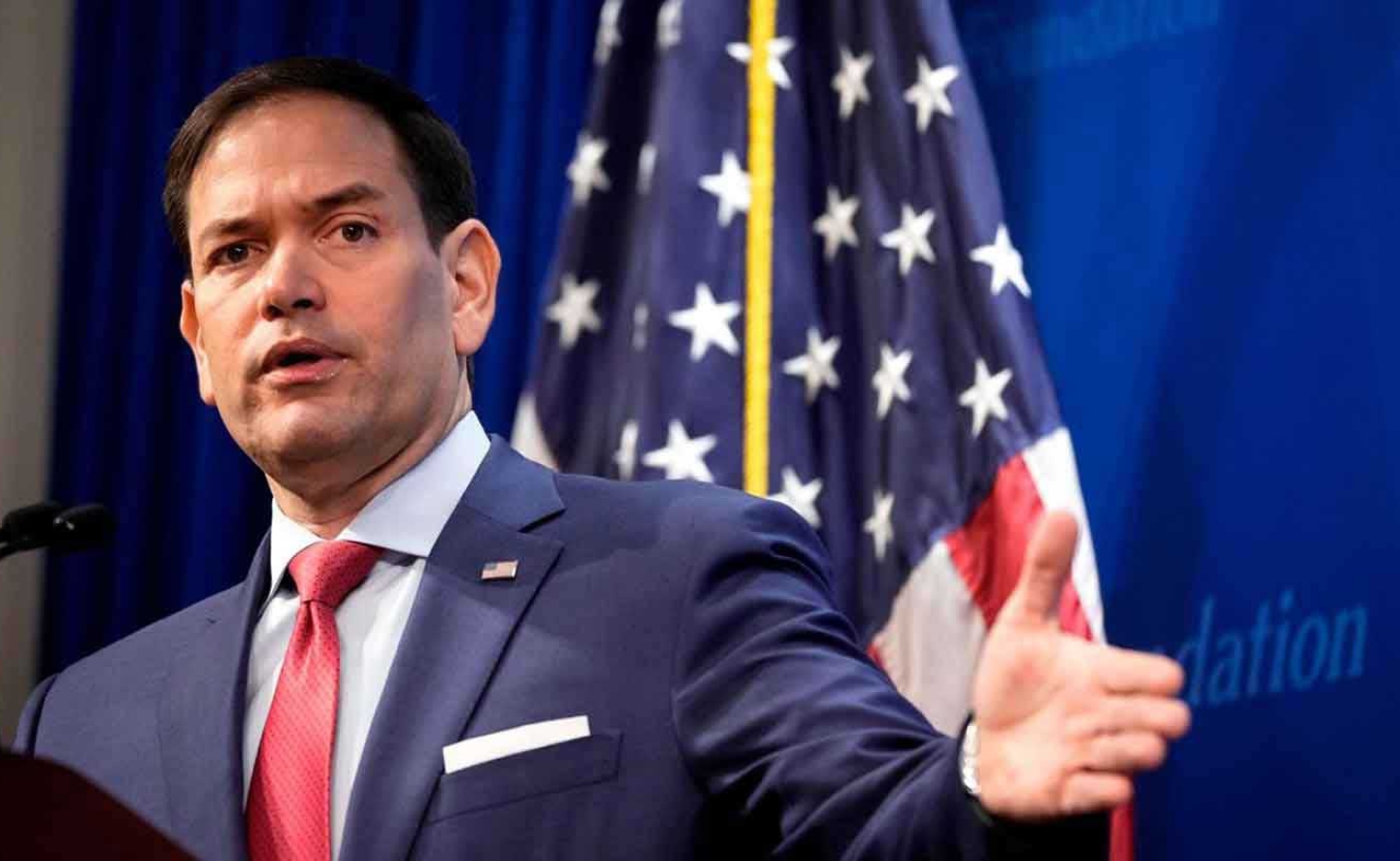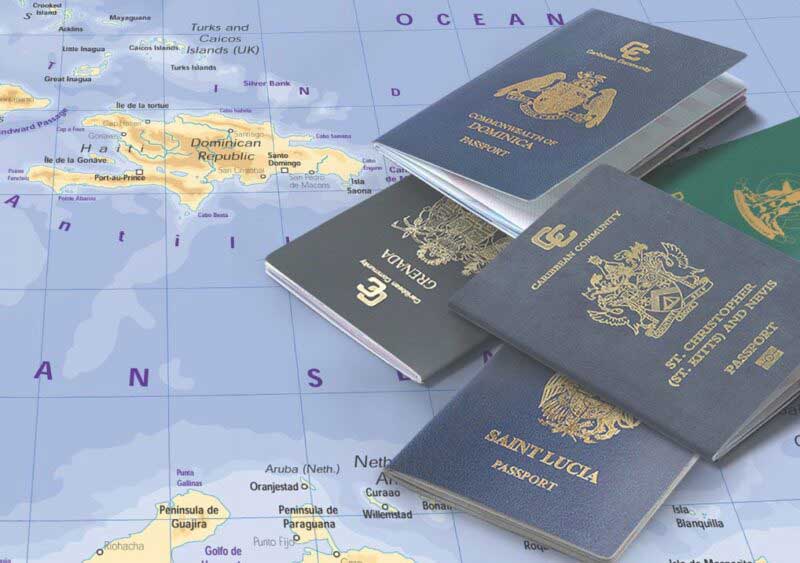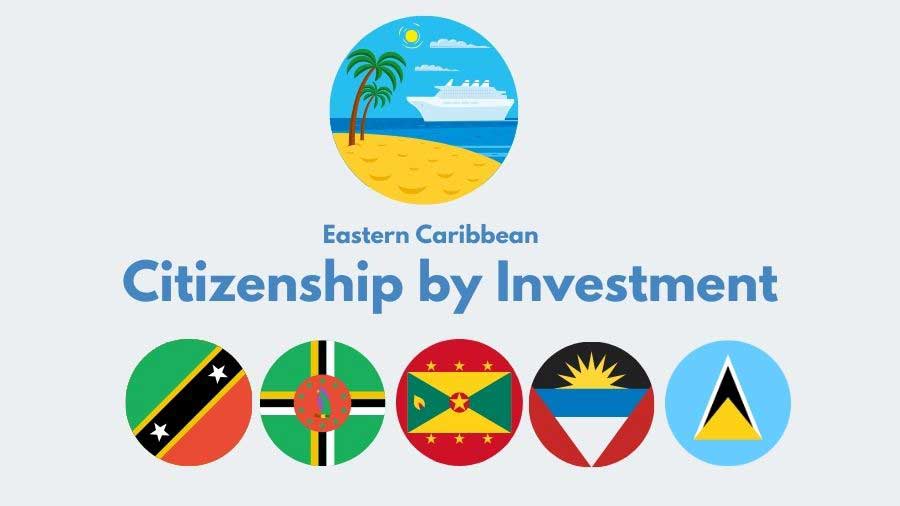CARIBBEAN | Accept US Deportees or Risk Travel Bans, Rubio intimates to CBI Countries

KINGSTON, Jamaica, June 17, 2025 - Four Eastern Caribbean nations that have built their economic futures around citizenship-by-investment programs now find themselves staring down the barrel of a diplomatic ultimatum that would make a mob boss blush.
US Secretary of State Marco Rubio has dangled what he surely considers a generous "carrot" before Antigua and Barbuda, Dominica, St Kitts and Nevis, and Saint Lucia – accept America's deportees and criminal overflow, or watch your citizens' travel privileges to the United States vanish.
A leaked State Department memo obtained by The Washington Post reveals the Trump administration's latest power play in international relations, giving these small island nations just 60 days to genuflect to newly defined benchmarks or face the prospect of visa bans that could cripple their tourism-dependent economies.
The document, bearing Rubio's signature and circulated to US diplomatic missions over the weekend, reads less like traditional diplomacy and more like a protection racket with a State Department letterhead.
The governments have been handed an even tighter noose – a deadline of 8 a.m. next Wednesday to submit initial action plans outlining how they intend to meet Washington's requirements. But here's where Rubio's memo takes a particularly cynical turn: countries willing to accept third-country nationals deported from the US, or to enter a so-called "safe third country" agreement, could alleviate some of Washington's concerns.
In plain English, the State Department wants these Caribbean nations to become America's offshore detention centers, much like El Salvador's recent agreement with Rubio to house US deportees of any nationality, including violent American criminals, in President Nayib Bukele's notorious "mega-prison." The parallel is as striking as it is troubling – small nations being pressured to solve America's domestic problems in exchange for continued access to US economic lifelines.
A Moving Target of Compliance
The irony is particularly bitter given that these Caribbean nations have spent years bending over backwards to address previous US and European concerns, implementing what industry experts describe as "chasing a moving target" of ever-changing compliance demands.
As recently as September 2024, the five Caribbean CBI countries participated in their third US-Caribbean Roundtable in Grenada, where they demonstrated progress on implementing six principles agreed to in February 2023, including collective denial sharing, mandatory interviews, enhanced due diligence checks, and the suspension of applications from Russians and Belarusians.
These weren't cosmetic changes – they represented substantial reforms that addressed legitimate security concerns while preserving programs that Caribbean officials maintain are "legitimate tools for economic development" with "rigorous due diligence."
The measures included not processing applications from persons denied in other CBI jurisdictions, conducting interviews with all applicants, running checks with Financial Intelligence Units, implementing regular audits, and requesting law enforcement assistance to retrieve revoked passports.
Yet here we are again, with Washington moving the goalposts and adding new demands that have little to do with the stated security concerns about citizenship investment programs and everything to do with America's immigration enforcement challenges.
How's that for a choice between a bullet and a knife? asks an Antiguan political representative as she commented on Marco Rubio's "saving grace" for the OECS countries.
The Security Theater Unravels
 The leaked memo cites "the sale of citizenship without a residency requirement" as a major concern, along with "broader governance issues" and alleged "anti-American activity" by nationals residing in the US. But scratch beneath the surface, and the real agenda becomes clear.
The leaked memo cites "the sale of citizenship without a residency requirement" as a major concern, along with "broader governance issues" and alleged "anti-American activity" by nationals residing in the US. But scratch beneath the surface, and the real agenda becomes clear.
As Rubio himself acknowledged during a State Department briefing on his Caribbean travel, the goal isn't to eliminate these programs but to ensure "CBI should not be a major part of these smaller islands' GDP" while simultaneously pressuring them to accept arrangements that would make them detention centers for America's unwanted.
The broader context makes Rubio's strategy even more transparent. The memo includes not just these four Caribbean nations but 25 African countries and several from Central Asia and the Pacific among 36 countries facing potential restrictions.
This represents a massive expansion of Trump's immigration enforcement dragnet, building on a presidential proclamation from June 4 that imposed travel bans on nationals from countries including Afghanistan, Myanmar, Chad, and others.
The El Salvador Template
Rubio's recent success in securing El Salvador's agreement to accept deportees of any nationality, including American citizens convicted of violent crimes, has clearly emboldened the administration's appetite for such arrangements. President Bukele's offer to house deportees in his two-year-old "mega-prison" – a potent symbol of his authoritarian crackdown on criminal gangs – provides a template that Rubio is now seeking to replicate across the Caribbean.
The timing is no coincidence. Trump's administration has made immigration enforcement one of its top priorities, working with regional countries to boost border enforcement and accept deportees from the United States. What makes the Caribbean ultimatum particularly brazen is that it weaponizes these nations' economic vulnerabilities against them.
Economic Blackmail Dressed as Diplomacy
 As Antigua's government noted, these CBI programs have been "offered in several OECS countries and done so successfully" as vital economic engines. For small island states with limited economic alternatives, citizenship investment programs have become "indispensable economic engines" that provide crucial revenue streams. Threatening to cut off US travel access – which could devastate tourism and business ties – while simultaneously demanding these nations accept America's deportees represents economic coercion of the most naked variety.
As Antigua's government noted, these CBI programs have been "offered in several OECS countries and done so successfully" as vital economic engines. For small island states with limited economic alternatives, citizenship investment programs have become "indispensable economic engines" that provide crucial revenue streams. Threatening to cut off US travel access – which could devastate tourism and business ties – while simultaneously demanding these nations accept America's deportees represents economic coercion of the most naked variety.
The regional response has been swift, with Antigua's Cabinet holding discussions "on the evident threat to the programme" and officials from the Ministry of Legal Affairs, Ministry of Foreign Affairs, and Citizenship by Investment Unit arming themselves with "legal briefs and other published data" to counter what they consider false claims. As one official noted, "every single citizenship application that we have had" has been submitted to the US government, but Washington now claims "they don't think that they should be vetting our citizenship programme because it costs them to take a look at each of them."
A Sovereignty Test
The Rubio memo represents more than just immigration policy – it's a test of how far small nations will allow themselves to be pushed by a superpower willing to leverage economic dependency for political compliance. The fact that Rubio acknowledges that "our goal here is not to impede the development of these islands" while simultaneously threatening their economic foundations reveals the cynical calculus at work.
As one Caribbean official pointedly observed, "The Caribbean has done its part. It's time for our international partners to acknowledge this." The region has implemented comprehensive reforms, enhanced due diligence measures, established information sharing protocols, and demonstrated good faith cooperation with US security concerns.
What they're being asked to do now – accept deportees and criminals in exchange for continued economic access – crosses the line from security cooperation into something far more troubling. It transforms sovereign nations into administrative appendages of US immigration enforcement, turning their territories into de facto American detention facilities.
The 60-day countdown has begun. Whether these Caribbean nations will accept Washington's offer they can't refuse, or find the courage to call America's bluff, will determine not just the future of citizenship investment programs, but the precedent for how superpowers can manipulate smaller nations in the new era of transactional diplomacy.
In Marco Rubio's world, it seems, sovereignty is just another commodity to be negotiated away in exchange for economic survival. The question now is whether the Caribbean will pay that price.
-30-
